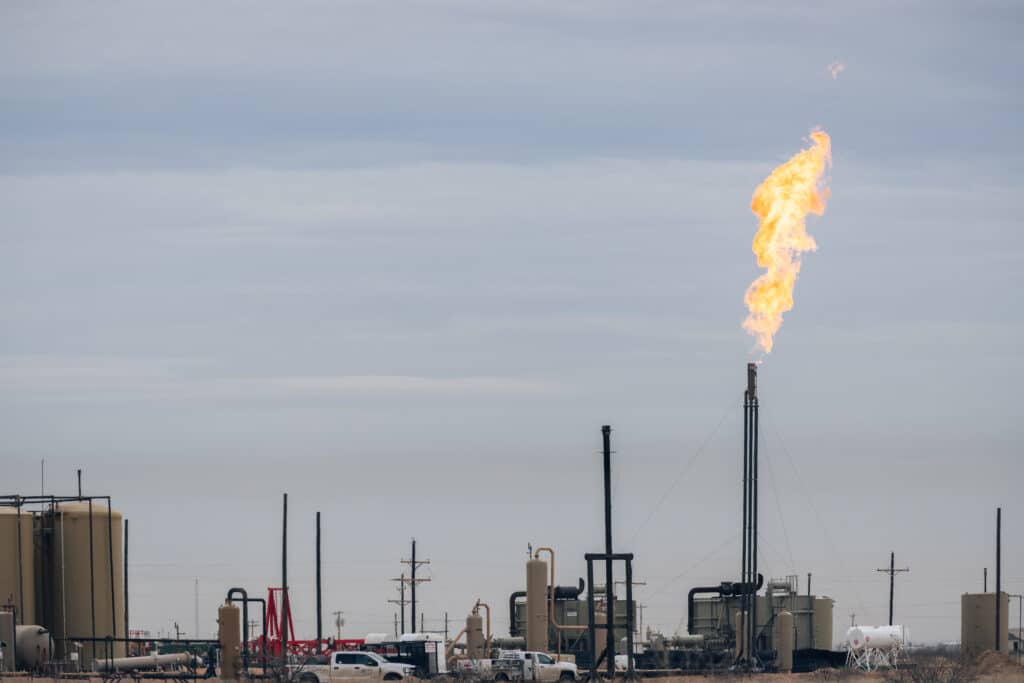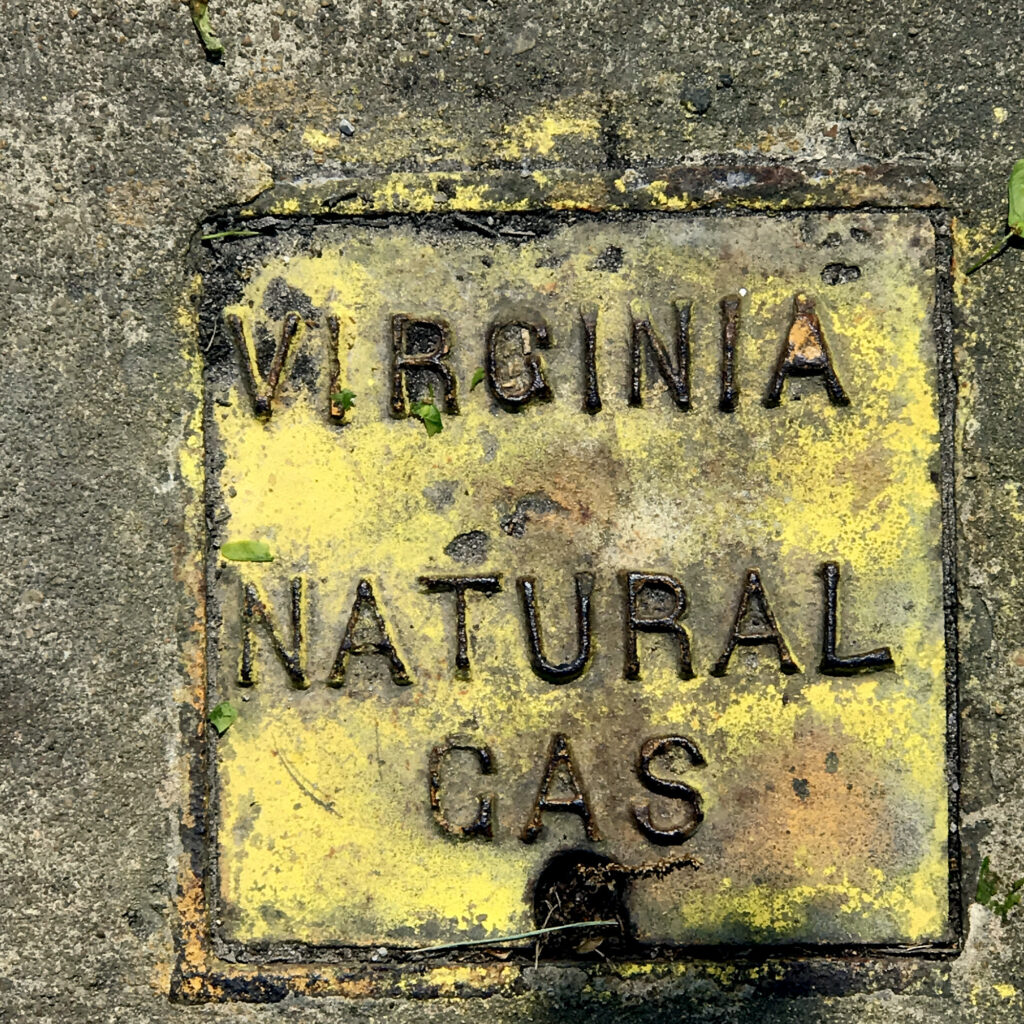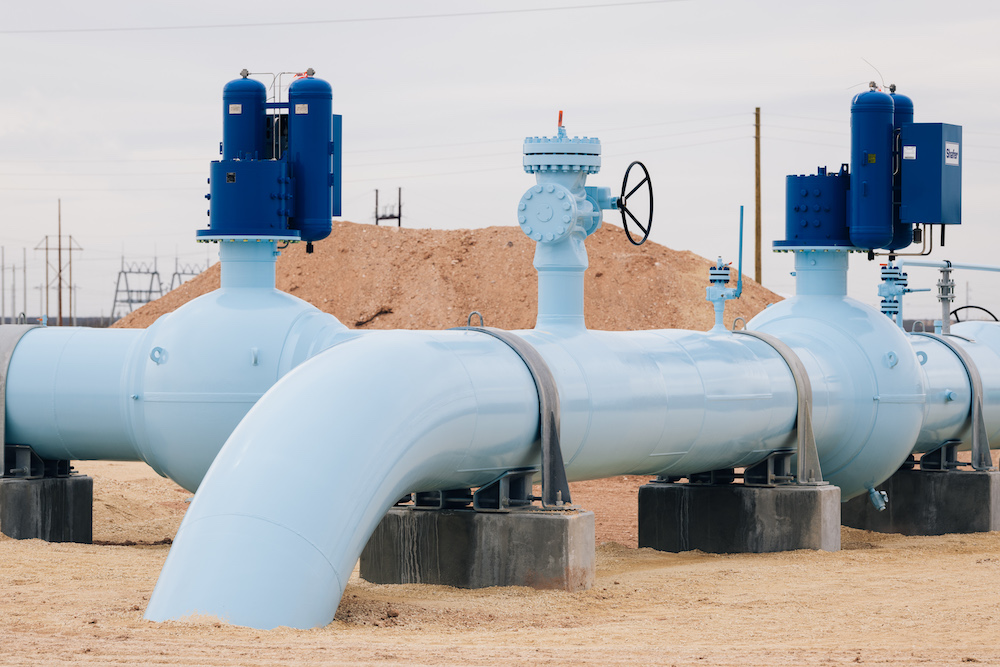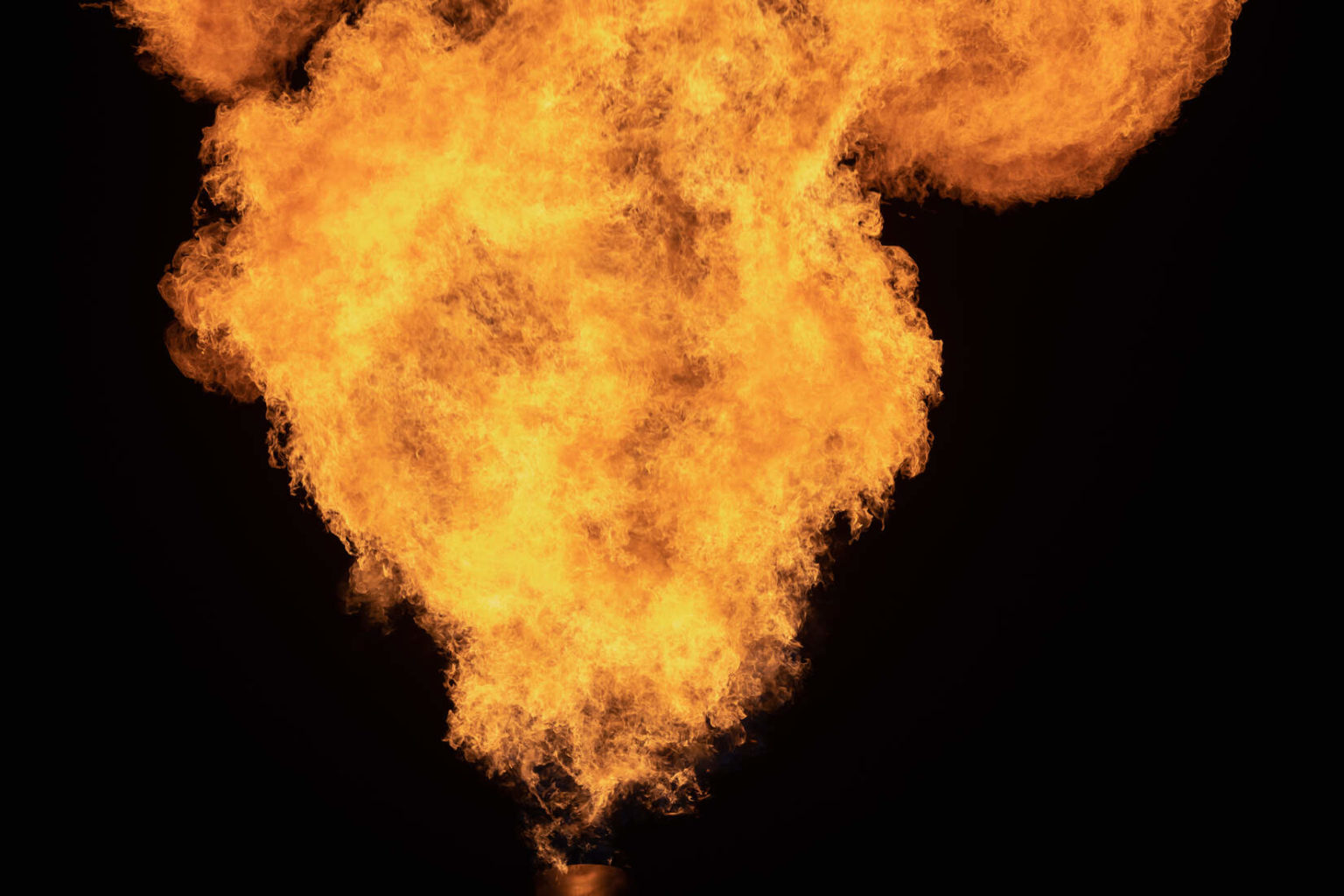Virginia Natural Gas’s aim, as it wrote in its request to the state regulator, was to “further support the reduction of greenhouse gas emissions.” As part of its “Sustainable Gas Program,” the Virginia-based private utility wanted to purchase what it calls “Next Generation Natural Gas.” But it needed the state’s blessing in order to pass on to customers a 15 percent premium for buying this specially certified gas.
The utility received that approval — but only for a five percent premium — in November 2022. Less than six months later, Virginia Natural Gas boasted that it was supplying “NextGen Gas,” or gas “produced with lower greenhouse gas emissions,” to satisfy up to half of the energy demands of its 300,000 customers. Whether that added expense and certification actually deliver on their climate promises, however, remains unclear.
And Virginia is not alone. Utilities in at least nine states have begun purchasing so-called “certified” or “responsible” gas, which the firms certifying it say delivers fewer methane emissions and other environmental impacts compared to the typical natural gas flowing into a furnace or stove. The Revolving Door Project, a watchdog group that scrutinizes executive branch agencies, has released new research tracking this rising trend among gas utilities. Yet as these utilities begin passing the higher costs on to ratepayers, critics warn that the extra expense comes with uncertain climate benefits while risking providing a justification for the gas industry’s ongoing expansion.
The fossil fuel industry is using certified gas as “a substitute for the real work of decarbonization,” Hannah Story Brown, a senior researcher at the Revolving Door Project, told DeSmog. “Customers shouldn’t bear the burden for upstream natural gas producers cleaning up their supply chain. That doesn’t make any sense.”
The Growing Market for Methane Management
At the heart of the issue is methane, the main ingredient in natural gas and an extremely powerful greenhouse gas, especially in the short term. And it leaks out of every step of the oil and gas supply chain, from the wellhead to storage to the point of use. That reality is drawing intense global scrutiny of the oil and gas industry. Studies show that roughly halving global methane emissions by 2030, for example, would avoid as much as a half degree Fahrenheit (0.3 degrees Celsius) of warming by the 2040s, producing a quick and potent climate impact.
In response to growing pressure to reduce those emissions, the gas industry and its customers are marketing a version of the fossil fuel that claims to come with low methane leaks. Sometimes called “certified gas,” “responsible gas,” or “differentiated gas,” gas producers have third party accreditation firms monitor natural gas wells — or related gas infrastructure, such as a compressor station — for leaks and then provide a stamp of approval indicating a very low methane leak rate for a certain amount of produced gas. One major certifier claims that the practice reduces methane emissions by more than 50 percent.
The oil majors, including BP, ExxonMobil, and Chevron, quickly jumped into the game, claiming that their sources of gas production meet the highest environmental standards.

But now gas utilities are increasingly turning to certified gas.
New Jersey Natural Gas landed the first deal for certified gas by a utility, with its 2018 purchase from a gas company called Southwestern. Since then, utilities around the country have followed suit, the Revolving Door Project found.
In four of those states — Virginia, New York, Michigan, and Vermont — utilities were able to convince regulators to approve rate increases for gas consumers to cover the costs of the higher-priced certified gas. Utilities in an additional four states, plus the District of Columbia, purchased certified gas at competitive prices.
Last year, New York regulators approved Con Edison’s proposal for a pilot project that would pass $800,000 per year in additional costs to ratepayers to procure certified gas. In Virginia, however, the exact cost passed on to customers is harder to find. In response to questions from DeSmog, a spokesperson for the Virginia State Corporation Commission, the state regulator, declined to specify the cost impact to customers of approving Virginia Natural Gas’s “NextGen Gas” upcharge. Virginia Natural Gas did not respond to a request for comment.

But gas utilities are not guaranteed success in passing on the expense every time. In October 2023, the Michigan Public Service Commission approved DTE Energy’s cost recovery plan, which included higher customer rates for certified gas. However, the Commission also issued a warning to the company, stating that the premium of $36,808 the utility paid for third-party certified gas “may not be recoverable in future” rate cases without demonstrating benefits to customers. Michigan’s attorney general opposed DTE’s efforts to pass on costs to ratepayers, arguing that certified gas is a “nascent, unproven technology.” The Commission agreed with that interpretation.
Story Brown said that the utility industry is still in the early stages of this trend, but that many more utilities are exploring and expressing interest in buying certified gas. While calling out the lack of federal definition or standard for “responsibly sourced” gas, the International Energy Agency noted that industry surveys showed nearly 30 percent of the U.S. gas market in 2022 was already “certified for its performance against certain environmental, social and governance metrics.”
That has sparked concern from some members of Congress. A group of Democratic senators, led by Massachusetts Senator Ed Markey, sent a letter to the U.S. Federal Trade Commission (FTC) on February 12, calling on the agency to “investigate and crack down on unfair and deceptive environmental claims” made by oil and gas companies.
“Evidence strongly suggests that current gas certification programs violate the FTC Act, which charges the Commission with protecting consumers from ‘unfair or deceptive acts or practices’,” the senators wrote. “[T]oo often these green claims are false or misleading due to opaque methodology, unreliable technology, and unacknowledged downstream climate effects of gas combustion.”
The Problems with Certified Gas
Claims that “certified gas” offers substantially lower methane emissions, and therefore a climate advantage, are riddled with problems, according to critics.
One of the main challenges lies with the certifiers, which tend to be privately held companies that share little detail about their certification process. Two organizations have emerged as prominent certification firms, Project Canary and MiQ. They both count top oil and gas names among their clients, including BP, Chesapeake Energy, EQT, and ExxonMobil.
An investigation published last year by Earthworks and Oil Change International found that some Colorado oil and gas sites using Project Canary monitoring technology failed to pick up significant pollution events. Earthworks used an optical gas imaging camera, which can detect pollution not visible to the naked eye, although it can’t delineate what type of pollutant it is picking up.
Josh Eisenfeld, campaign manager for corporate accountability at Earthworks, said the investigation demonstrated the shortcomings of Project Canary’s monitoring technology, which undercuts the reliability of the claims that “certified gas” is somehow clean.
“The company would be reporting what their monitors were reading. But the monitors were never really picking much up,” he told DeSmog. He said that Earthworks found that, at times, some monitors were incorrectly positioned as far as 700 feet from the well site, and even behind a 30-foot-tall sound wall, putting a physical barrier between the sensor and the pollution source it was monitoring.
On its website, Project Canary rebutted the findings, stating that Earthworks’ report contained “inaccurate and misleading claims,” andincluding that the monitors assessed by Earthworks were not meant to measure methane. The company
Project Canary also said that none of the wells visited by Earthworks were attempting to be certified as “responsibly sourced gas.”
Eisenfeld countered that part of the problem is the lack of transparency from Project Canary.
Project Canary did not respond to questions from DeSmog.
“The providers attest to the accuracy of their own process.”
-Virginia utility regulators
Another major issue with “certified gas” lies in the variation among the multiple companies providing monitoring services and certification, each with their own unique, proprietary methods and metrics. The resulting marketplace for “certified gas” has become a confusing patchwork of measurements with no standardization and little opportunity for comparing driller performances across the country or the globe.
When evaluating claims about Virginia Natural Gas’ “NextGen Gas,” regulatory staff noted that ambiguity. “There does not yet appear to be a single standard that has been adopted by the industry to certify the low emissions profile of the gas, nor does there appear to be any organization charged with licensing certifiers,” Virginia State Corporation Commission staff wrote. “The providers attest to the accuracy of their own process.”
Meanwhile, another problem with the fast-growing “certified gas” industry, according to the Earthworks and Oil Change International report, is that the certifying firms have a conflict of interest. They depend on oil and gas companies to pay for their certification services and often their monitoring equipment too, while the drillers depend on the certifiers to grant their gas a clean bill of health.
That tension is clear in comments Project Canary co-founder Chris Romer made to DeSmog in 2021, when he said some clients had asked the company to shut off its sensors, dubbed “canaries,” after showing higher leaks than they apparently had reported to the U.S. Environmental Protection Agency (EPA). “They have asked us to shut off the canaries, and we’ve told them hell no. Shut off the canaries, we’ll take them down,” Romer said.
Gas companies can also cherry-pick their best wells to undergo evaluation, a problem that even Project Canary has admitted is a legitimate concern.
“Conflicts of interest are pretty baked into the only viable business model,” Story Brown said.
Gas producers and their third-party certifying firms even directly joined hands to form a lobbying group, the Differentiated Gas Coordinating Council (DGCC). The group includes oil and gas giants such as Baker Hughes, Sempra, and Williams, as well as certifiers such as Project Canary.
Last year the DGCC met with officials from the EPA as they sought to influence forthcoming regulations on methane, which focus heavily on methane monitoring. The council also held meetings with the Department of Energy (DOE), as the agency considered coming out with federal standards for certified gas.
Ultimately, DOE backed off that move after a coalition of 148 environmental groups, including Earthworks, Oil Change International, and Revolving Door Project, urged the agency to stop efforts to come up with a “certified gas” standard. The coalition warned the agency that gas certification is a “dangerous diversion.”
While the Energy Department may have paused that process, the U.S. and the European Commission have launched talks to figure out standards that would give low-methane gas “preferential access” to the European market, according to E&E News.
But the lack of transparency and the inability of the public to see behind the curtain is a “recurring theme” with the whole concept of certified gas, Story Brown said.
“The industry is making these quite audacious claims about the emissions that come from this fuel and then also attaching a premium to it. But there’s no transparency about actually how that’s being verified,” she said. “None of that data is ever made publicly available.”
Risk of Industry Expansion

Even if methane leaks can be almost entirely eliminated at the drilling site, gas could still leak at any stage thereafter, from compressor stations, pipelines, at LNG export terminals, even in people’s homes. In fact, most methane leaks don’t occur at gas production sites. However, the certification schemes don’t account for that.
“As soon as it leaves the well site, there are seven other hands that it goes through,” Eisenfeld said. Once the gas leaves the well pad and is handed off to another corporate entity downstream, it is often not “certified” at those stages, and there is no guarantee that it is handled with the same care.
Tim Doty, a retired regulator for the Texas Commission on Environmental Quality, spent years monitoring oil and gas sites for pollution. He cautioned that even the term “leaks” can be misleading because, on top of accidental releases, oil and gas systems are designed to emit pollution for safety reasons.
“Operators are required to get operating permits from a regulator, and therefore those permits give them regulatory permission to emit,” Doty told DeSmog. The methane problem includes leaks, yes, but also pollution that is released intentionally.
“That’s literally greenwashing and marketing.”
-Tim Doty, retired Texas regulator
He added that there is not much of a scientific or technological basis to call gas “certified,” with the implication that it is somehow a clean fuel.
“That’s literally greenwashing and marketing,” he said.
More broadly, the conversation about “certified gas” risks creating a false sense of progress, providing a justification for the gas industry’s continued expansion, critics say.
“Utilities and the oil and gas industry all have vested interests in making the public believe that the gas system is clean and getting cleaner,” Caleb Heeringa, program director at the Gas Leaks Project, a nonprofit tracking the gas industry. “Every single climate study and energy model you look at says we need to be getting off gas, not just using cleaner gas. So, there’s a potential for this to really undermine the transition to clean energy.”
Gas certification firms have not been shy about their services clearing the way for ongoing gas production. In 2020, Project Canary’s Romer spoke at an oil and gas conference, where he argued that his company’s monitoring technology could help preserve the industry’s “social license” to operate.
“Sometimes I kid that I am the last Democrat for fracking,” Romer said, suggesting that the political atmosphere for oil and gas operators is becoming increasingly hostile. He warned industry attendees that they are facing “an existential risk” unless they can manage their carbon footprint — a problem for which Project Canary had a solution.
While gas producers and gas utilities are promoting the use of certified gas, critics like Revolving Door Project say the concept also bolsters and reinforces another rapidly ballooning segment of the gas industry — LNG exports. After all, one of the main arguments from gas lobbyists and LNG companies is that American gas is “cleaner,” and therefore, can serve as a climate solution.
Indeed, the DGCC criticized the Biden administration’s January decision to pause the approval process for 17 new LNG export terminals to weigh the climate impact. Noting that the oil and gas sector was already implementing certified gas protocols, and federal regulation on methane emissions was moving forward, the DGCC argued that the U.S. is “at the forefront of responsible energy production and environmental stewardship.”
Romer has championed LNG exports when pitching his services. “We need to expand LNG globally by a big number. The U.S. is ready to do that in a very big way,” he said at the 2022 Gastech conference in Milan, Italy. “We would love it to be certified gas. We would love it to be Project Canary-certified gas.”
“Certified gas” represents the “keystone” of the gas industry’s attempts to grow in a climate-constrained world, according to Eisenfeld from Earthworks. “They need the social license, and I think that’s what’s driving a lot of this,” he said. “But there’s absolutely zero certainty that this is a climate benefit.”
Subscribe to our newsletter
Stay up to date with DeSmog news and alerts







